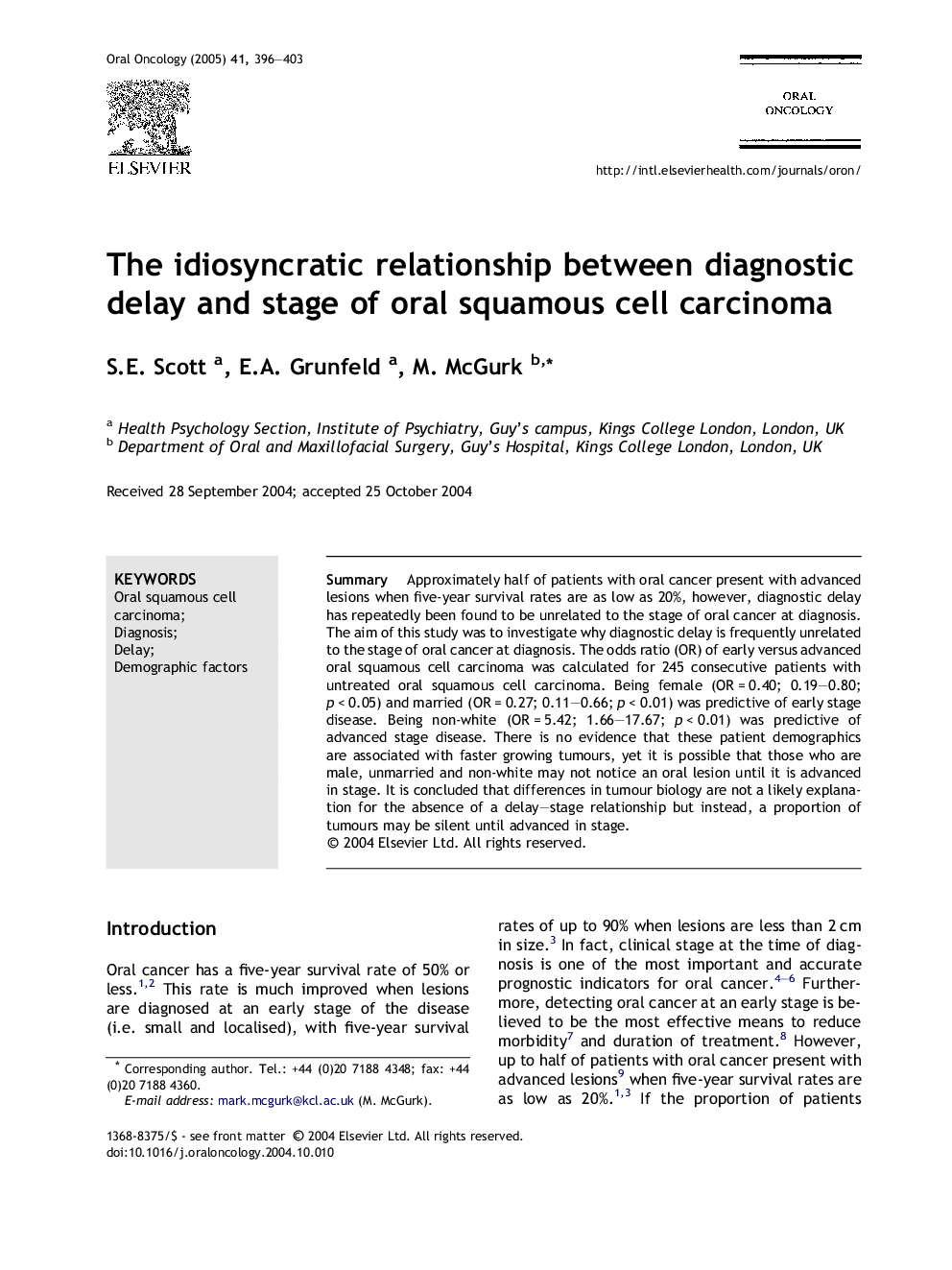| Article ID | Journal | Published Year | Pages | File Type |
|---|---|---|---|---|
| 9216973 | Oral Oncology | 2005 | 8 Pages |
Abstract
Approximately half of patients with oral cancer present with advanced lesions when five-year survival rates are as low as 20%, however, diagnostic delay has repeatedly been found to be unrelated to the stage of oral cancer at diagnosis. The aim of this study was to investigate why diagnostic delay is frequently unrelated to the stage of oral cancer at diagnosis. The odds ratio (OR) of early versus advanced oral squamous cell carcinoma was calculated for 245 consecutive patients with untreated oral squamous cell carcinoma. Being female (OR = 0.40; 0.19-0.80; p < 0.05) and married (OR = 0.27; 0.11-0.66; p < 0.01) was predictive of early stage disease. Being non-white (OR = 5.42; 1.66-17.67; p < 0.01) was predictive of advanced stage disease. There is no evidence that these patient demographics are associated with faster growing tumours, yet it is possible that those who are male, unmarried and non-white may not notice an oral lesion until it is advanced in stage. It is concluded that differences in tumour biology are not a likely explanation for the absence of a delay-stage relationship but instead, a proportion of tumours may be silent until advanced in stage.
Related Topics
Health Sciences
Medicine and Dentistry
Dentistry, Oral Surgery and Medicine
Authors
S.E. Scott, E.A. Grunfeld, M. McGurk,
